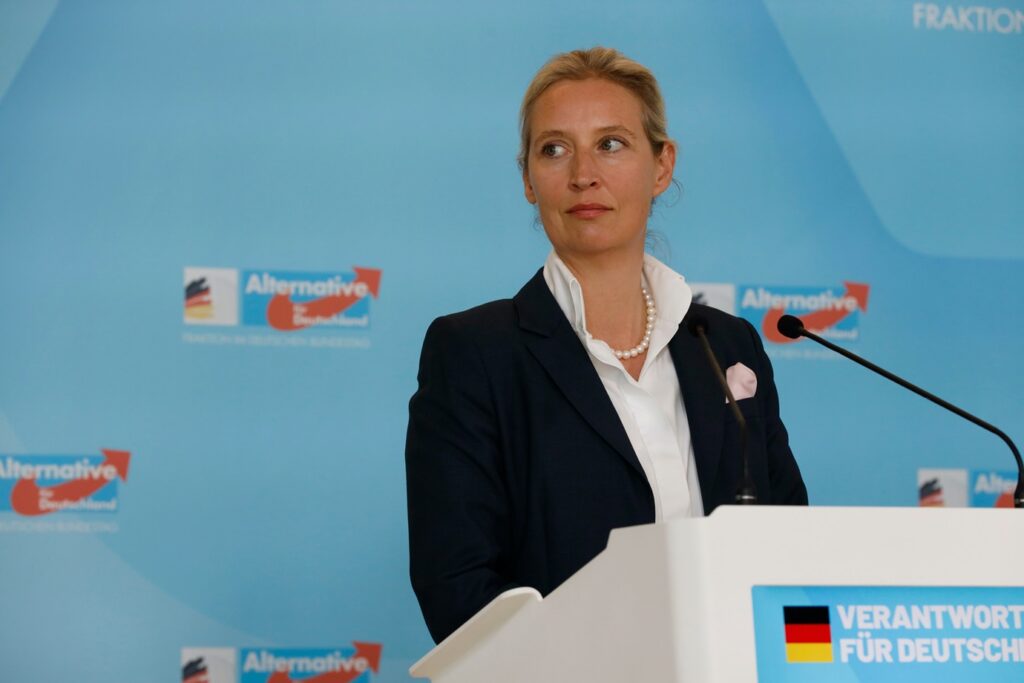Germany has voted in the conservative Christian Democratic Alliance CDU/CSU to form its new government, with the country’s far-right minor party, AfD, coming a historic second.
The CDU/CSU’s party leader Friedrich Merz is set to become German chancellor and will likely lead a Coalition arrangement with other parties. All parties have ruled out working with the AfD (Alternative für Deutschland).
It’s thought that Merz will take the country in a more conservative direction than current Chancellor Olaf Scholz, an unpopular Social Democrat chancellor who succeeded Angela Merkel after her 16-year reign.
The backdrop to this latest federal election was Germany’s historic level of voter turnout, with more than four in every five of the country’s 59.2 million voters casting their vote.
The surge in voter participation was particularly notable considering the party that got the second highest number of votes was the far-right AfD, which celebrated its highest-ever result in a federal poll.
The AfD and Alice Weidel
The AfD is considered to be one of Germany’s most far-right and pro-Kremlin parties. It advocates for Germany’s exit from the European Union, lifting sanctions on Russia, ending support for Ukraine, and it has criticised the country’s culture of Holocaust remembrance.
Co-leader and chancellor candidate of the AfD is Alice Weidel, who criticised the CDU/CSU for refusing to work with her party, saying the AfD would be waiting in the wings to take over the helm for an “unstable government which will not last the next four years”.
Weidel, 46, has emerged as a formidable figure in German politics. In January this year, she led the AfD to make history by helping pass a motion in federal parliament to restrict immigration. For the first time since entering the federal parliament in 2017, the AfD received votes to influence national policy.
Growing up in northwest Germany, Weidel came to politics after a career in finance. Before joining the AfD in late 2013, she had her own consulting firm, is married to a Sri Lankan-born woman, has two sons and divides her time between Switzerland and Germany.
She’s seen as an ambitious leader and the face of the AfD, focusing much of her campaigning in the former East Germany, which has remained poorer than western Germany. She’s also a savvy communicator, reaching young voters on TikTok and X.
Tapping into voter discontent, Weidel has blamed globalisation for Germany’s troubles. She has called for tighter restrictions on immigration, pointed the finger at Europe’s transition to green energy for costing German jobs and supports a return to fossil fuels.
Far-right populists gaining more global influence
Looking at global trends over the past decade, frustrations with the political class have created opportunities for right-wing populists and other challengers to traditional parties to become embedded in the political landscape, according to the Pew Research Centre.
In Europe, right wing parties have won elections in countries like the Netherlands and Italy, but even when they’ve lost power, it’s becoming clear that they’re competitive in ways not seen previously.
Over in the United States, Trump’s election win has moved the country into a radical far-right territory. Among Trump voters, frustrations with the economy were the top issue of concern, a consistent theme around the globe.
While divisions over the economy, cultural issues and anger at the political status quo are sending voters around the world towards conservative politics, there’s still nuance.
Following the result of the German election, Trump was quick to hail the success of the conservative party as a sort of personal triumph, however Merz told the state broadcaster that his top priority as the next chancellor would be to “strengthen Europe as quickly as possible so that we can be independent of the United States of America”.
“After Donald Trump’s statements last week, it’s clear: this American government doesn’t care for Europe,” Merz said, referring to Trump calling Ukraine’s President Volodymyr Zelensky a “dictator”.
Merz also criticized what he called “interference” from Elon Musk, who had promoted the AfD, “drastic and shameful- similar to what we’ve heard from Moscow in the past.”
Feature image: Alice Weidel.


